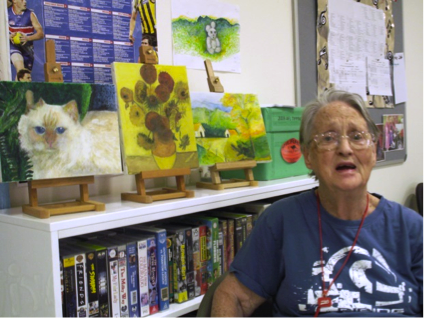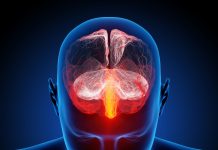When you’re young, moments in life seem to stay forever-for better or for worse.
The memory of the beautiful day at Zilker park when you played volleyball, or the incredible SXSW show when you got so drunk you lost your phone are compartmentalized in our mind. As we age there are many things that can affect memory, and one of the biggest threats to our cognitive ability is Dementia. Psychologists argue that we forget certain details over time within our memories. Even crazier than that, we also add details that did not even happen.
One of the most common types of Dementia is Alzheimer’s disease. An estimated five million Americans now have Alzheimer’s, according to the Alzheimer’s Association. Nearly twice as many women have the disease compared to men. Luckily, new research provided by the Montessori-Based Dementia Program, has led to the development of strategies to combat this debilitating disease. Originally launched as a program to assist younger children learn motor skills, it has created an environment of respect and dignity to all persons. They aim to foster development of a true community for residents with Dementia, their families, and staff members who provide care. One of the lead researchers on this subject, Dr. Cameron Camp, regularly lectures on how he has applied this method to help others. We were lucky enough to connect with Dr. Camp to learn more about his work.

What is memory psychologically and physically?
Memory is not one single thing. It’s conscious learning broken into two categories. Conscious learning (or declarative), is the ‘what’ of memory, and is often first affected by Alzheimer’s. Implicit (or procedural memory), is similar to muscle memory. For example, when you first take a class there is some serious mental thought about where you will sit. However, after the first week without blinking an eye you return to the same seat every time for the rest of the year.
How can you prevent memory from degrading?
Taking care of your physical body will help protect your mind from degrading. Exercise, a healthy diet, along with watching your blood sugar and cholesterol are all great habits to promote a healthy mind. Even once dementia settles in, it’s important to focus on your quality of life. Continue to enjoy healthy activities, laughter, and spend time with loved ones.
“You get used to miracles when you work with these people.”
 Our goal is to give people back their liberty; give them back their choice. Caregivers should help patients improve their quality of life and allow them to engage by letting them choose what to eat and how to exercise. We should focus more on their lives and less on their problems.
Our goal is to give people back their liberty; give them back their choice. Caregivers should help patients improve their quality of life and allow them to engage by letting them choose what to eat and how to exercise. We should focus more on their lives and less on their problems.
Does a creative lifestyle benefit the mind?
Some scientists studying this closely believe that a stimulating environment is “neuroprotective.” Engaging in new activities, taking a different route to work, writing poetry, or even studying a new language have been proven to help with Dementia. While working in Australia I saw a woman learn to paint after being diagnosed. It was paint by numbers at first, then she was gifted a book on drawing, and eventually she began doing original portraits, even one of the Queen. It was so amazing to see her progress.
What led you to assist with dementia and cognitive intervention?
While in school I studied aging. When I moved to New Orleans with my family, my children were taking Montessori classes. Montessori is a developmental program that improves how children receive information. It was then that I had an “aha moment,” and began testing this on patients with Dementia. It really hits home for us because my mother-in-law battles with the disease.
What’s the future for this disease, in regards to treating it?
The Montessori method for treating people with Dementia is becoming extremely popular and effective. I have been traveling all over the world to spread this valuable information to combat an illness that is dramatically affecting more and more people. For example, in France the government pays for staff to enroll in Dementia training and Montessori-Based Programming is at the top of their list. Australia is also using the Montessori method.
















